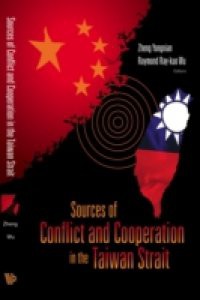This volume is the first attempt to systematically analyze issues and challenges confronting the Taiwan Strait after the March 2004 election. The volume focuses on internal politics on both sides of the Taiwan Strait and their impact on cross-Strait ties, and international responses. It also reflects different perspectives, namely, China, the United States, Singapore and Taiwan. Consolidating these perspectives, the volume suggests directions for continued research on a potentially volatile area where many view as the world's next “hot spot”.Contents: Taiwan's 2004 Presidential Election: The Day After (C-C Lo)Prospects for the Pan-Blue in Post-2004 Presidential Election Taiwan (R R Wu)Sources in China's Formulation of Its Taiwan Policy (Y Zheng & L F Lye)The Economics of the “Three Links” (L-R Wang & C-H Shen)The Three Paradigms for the Taiwan Question (B He)The Strategic Lessons and the Evolution of Approach: China's Management of the Taiwan Issue and Its American Element (Y Shi)The Cross-Taiwan Strait Relations: Hard to Start and Move (S Chu)The United States Factor in Cross-Strait Crises (Q Tan)United States Taiwan Policy: How the 2004 (Taiwan) Presidential Election Put It to the Test (J F Copper)Trends in PRC-Taiwan Relations and United States Policy Responses (S L Shirk)Taiwan in Japan's Relations with China: After the Cold War (P E Lam)A Southeast Asian Perspective on Cross-Strait Relations (E C C Teo)Readership: Academics, students and general readers interested in the Taiwan issue and cross-Strait relations.





 8.4 (5)
8.4 (5) 












